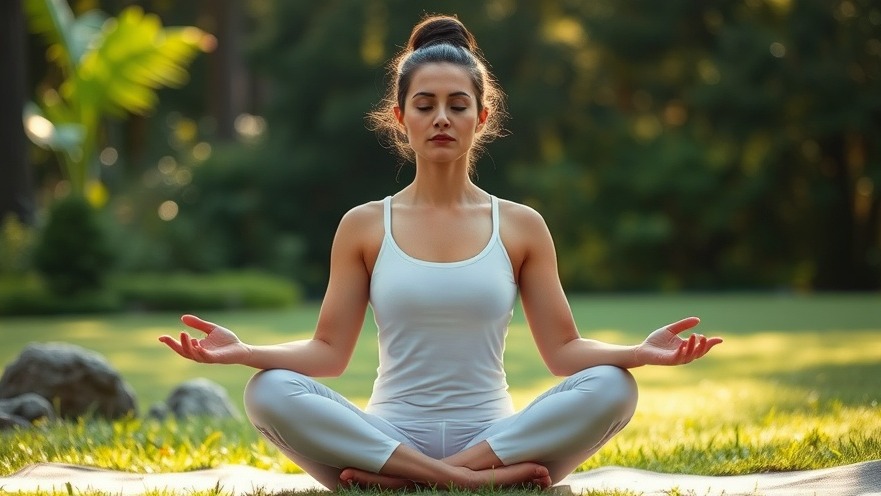
Finding Peace Amidst Pain: The Power of Mindfulness
For many digital nomads weaving their way through various landscapes, the joys of travel often come hand-in-hand with unexpected challenges. Chronic pain and illness can add layers of complexity to your journey, impacting mental health and overall wellness. In an era where we're constantly on the move, it's vital to cultivate mindfulness practices that allow us to stay present, even in the face of discomfort.
Embracing Your Reality: A Shift in Perspective
As Sarah Jester poignantly shares in her reflections on living with chronic illness, confronting suffering—both our own and that of others—can be a deeply transformative process. Have you ever felt the urge to suppress your pain or rush towards a state of positivity? While positive thinking holds value, it’s essential to honor our current experiences without judgment. Jester's insight into this 'fine line' is crucial, particularly for those of us navigating the nomadic lifestyle, where the pressures to feel okay can sometimes feel overwhelming.
Understanding Mindfulness as a Tool for Managing Pain
Mindfulness, as defined by experts like Jon Kabat-Zinn, is simply being aware and attentive in the present moment, without judgment. Research underscores the effectiveness of mindfulness practices in managing chronic pain—an insight crucial for those balancing travel and health issues. Kabat-Zinn's body scan technique, for instance, encourages individuals to focus their awareness systematically across the body, acknowledging sensations and discomfort without the pressure to change them. This practice reinforces a sense of agency and control, providing a reprieve from the constant struggle against pain.
Strategies for Mindful Living on the Go
Adapting mindfulness to a travel-friendly routine can be empowering. Whether you're in a bustling city or a serene countryside, incorporating simple practices can help ground you. The 'titrate and pendulate' approach mentioned by Jester invites you to alternate between focusing on discomfort and neutral sensations. This can be practiced discreetly anywhere, turning moments of waiting—perhaps on a train or in a cafe—into opportunities for mindful breathing and awareness.
Creating Space for Compassion: Being Gentle with Yourself
It's essential to foster self-compassion, especially when dealing with chronic conditions. Even in the most picturesque settings, it's crucial to allow yourself space to feel and recognize pain without the stigma of shame. As outlined in the Mayo Clinic Health System review, regular mindfulness practice is not just about reducing pain—it's about creating a foundational experience where pain can exist, and we can still thrive. The road might be tough, but acknowledging each moment with compassion can lead to resilience.
The Future of Mindful Travel: A Community Perspective
Embarking on a path of mindful living during your travels can connect you with others experiencing similar challenges. Communities dedicated to wellness and mindful practices can offer support, whether through virtual groups or local meet-ups. Sharing strategies, stories, and insights can emphasize the collective nature of this journey, reminding us that we are not alone in our struggles.
Conclusion: Stepping Forward with Intent
Mindfully navigating pain and illness isn't about eliminating discomfort; it's about embracing life as it unfolds. Each moment spent in mindful acceptance can lead to profound insights and transformations. So, as you embark on your next adventure, remember to take a deep breath, honor your journey, and allow space for every experience—both the joyful and the painful. Being aware is the first step towards enhancing your travels and overall mental health.
 Add Row
Add Row  Add
Add 




Write A Comment